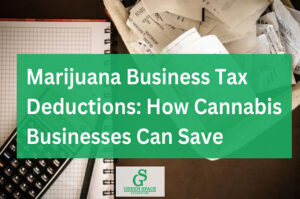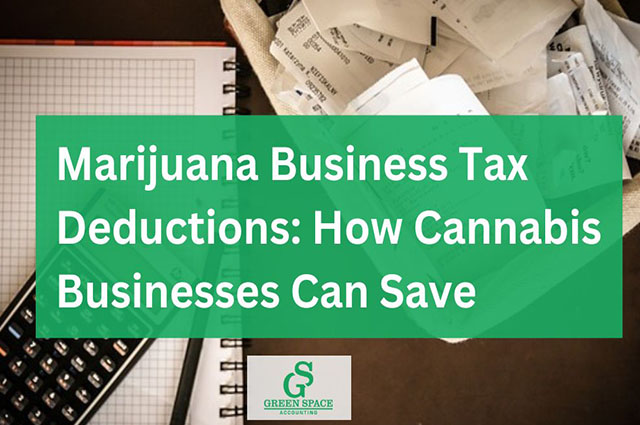For more than a decade, cannabis has been a heavily regulated industry. The financial rules and tax codes are unique to the industry and are can vary from state to state. Unfortunately, the industry faces high over-taxations, leaving business owners under the pressure of maintaining their profits. Due to the industry’s nature, the cannabis businesses in the U.S have become a target of the IRS cannabis tax audit.
We created this article to help you understand why an IRS tax audit can happen and how you can prevent them from endangering your cannabis business. Let’s jump in.

Why Do IRS Cannabis Tax Audits Happen?
So, why are these cannabis audits happening? First, it is essential to note that these audits’ goal is to implement federal tax code compliance. And this is primarily based on IRS belief that most marijuana businesses and firms often skirt the federal tax code’s Section 280E while claiming illegal write-offs.
For instance, the agency focused one of its audit projects on Colorado cannabis businesses between January 2016 and June 2017. The audit unearthed over $43 million in unpaid federal taxes, according to the documents. However, the same documents propose that the unearthed amount has been considerably more than what IRS has collected from mainstream firms.
According to IRS agents, they audit taxpayers with a high non-compliance risk from any industry. The agents add that the federal agency’s mission is to encourage voluntary compliance, including compliance with IRC Section 280E.
Impact on Cannabis Businesses
Cannabis businesses audits might be less frequent today than in the past, but they are still occurring at a far greater rate than audits for other industries. Recently, MJBiz Daily published some internal IRS documents through the Freedom of Information Act that exposed some exciting information. It uncovered insight into the IRS’s internal thought procedure towards cannabis business audits.
The documents show the significant financial incentives that the IRS benefits from after auditing cannabis businesses versus other industries. A good example is the report’s findings of a 2012 cannabis audit that generated $945 per hour on average in a tax review compared to the $544 per hour from a non-cannabis company.
Despite expanded legalization, this disparity kept on deepening. By 2019, multiple states in the United States, like California, had altered their policies to allow adult cannabis use, which increased the average assessment rate per hour. The rate increased to $2752 as opposed to $1065 from mainstream businesses. So, the IRS’s financial motivations are noticeable, with the average hourly audit evaluation rate almost tripling in the cannabis industry versus other industries.
The report also suggested that only 3 percent of cannabis returns had no adjustments or errors, unlike the 21 percent in other business sectors. In simpler terms, these findings indicated that 97 percent of audited cannabis businesses had underreported their federal tax liabilities, causing them to owe the agency more money.
How to Prevent Audits from Jeopardizing your Business
Understand the cannabis taxes
Usually, you will face litigation as the business owner, and the IRS will hold you responsible for any penalties or back taxes. You may even be at risk of jail time if the agency considers your statements criminal. So, it would help if you had a high understanding level of what the law requires of you from a tax and cannabis accounting standpoint. Ensure you have balances and checks in place to ensure whoever you are hiring is competent enough.
Keep all tax records for seven years.
Maintain your company supporting documents and income tax returns for no less than seven years from the return’s tax year. Remember that the IRS can audit your business returns against IRC Section 280E, and you can adjust the return to claim extra credits. This will be for a period varying between 3 to 7 years from the date you initially filed, but the recommendation is to use seven years as your guide for maintaining these essential documents.
Hire a cannabis accounting professional
Your business is more likely to attract an IRS audit if it generates more money primarily because you are likely needed to file Form 8300 for the several transactions that took place. Additionally, your cannabis business may take enormous deductions for the Cost of Goods Sold (COGS). In that case, the agency may desire to scrutinize your deductions more closely. So, ensure you maintain copies of the entire receipts and file tax forms for the items you claimed as part of your COGS deductions. Hiring a competent cannabis accounting personnel will help you accomplish all that and more.
IRS Cannabis Tax Audit: Final Thoughts
The best way to be sure that your cannabis company will be safe from audits is to use the expertise of a cannabis accounting expert. Hiring someone specializing in cannabis accounting will significantly help with your company’s finances and taxes.
Contact us today to book a free consultation, and learn how we can help your business stay financially compliant.

How To Thrive In Maryland’s Recreational Cannabis Market
Maryland’s cannabis has come far since the Maryland weed legalization of adult use in 2023. There have been businesses seeking and building their cannabis company

Marijuana Business Tax Deductions: How Cannabis Businesses Can Save
Marijuana businesses need to know the ins and outs of taxes, especially knowing what you can deduct from taxes. With the 280e rule, you can

Your Essential Guide To Maryland Cannabis Compliance
Maryland cannabis compliance is similar to other states with a few minor changes in taxation. Operating a business in the cannabis industry is hard, but

Debt Lending: A Cannabis Business Essential
The cannabis industry has been met with challenges in getting capital from traditional banks and other means. With the Schedule 1 rule on cannabis, many

What You Should Know About Federal Cannabis Rescheduling
The rescheduling of cannabis may come to pass as new regulations are continuously being made. What does this mean for cannabis companies like yours? Cannabis

Top Cannabis Business Loans: Find The Right Financing For Your Needs
Cannabis loans are a financial option when you’re looking to grow your operations, cover inventory costs, and pay for regulatory compliance expenses. A loan can








